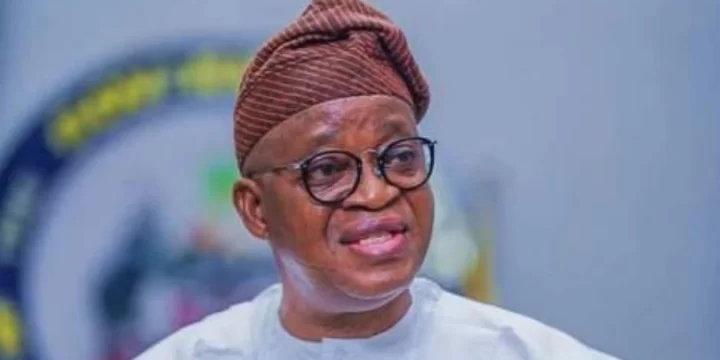The Federal Government has clarified that no contract has been awarded under the current administration for the Baro Inland Port project in Niger State. The clarification comes amid growing public interest and legislative scrutiny concerning the status of the multibillion-naira project, which has remained non-operational years after it was commissioned.
According to the government, the Baro port project was initiated by previous administrations, and while there have been ongoing discussions regarding its operational challenges, no new contract has been issued since the present government assumed office. The Minister of Marine and Blue Economy, through official communication, confirmed that the current administration has not awarded any new contract for the port or any associated infrastructure.

This clarification was issued in response to claims and inquiries from the House of Representatives, which had set up an ad-hoc committee to investigate the delay in the port’s activation and to ascertain whether any fresh contracts had been awarded without due process. The House committee, led by Hon. Saidu Abdullahi, summoned the Minister of Marine and Blue Economy and the leadership of the National Inland Waterways Authority (NIWA) to provide updates on the port’s operational status and related expenditures.
During the legislative inquiry, it was revealed that while the Baro Port was completed and commissioned over five years ago, it has remained largely inactive due to several factors beyond mere contract issues. These include lack of proper access roads, poor connectivity to national transport infrastructure, siltation of the river channel, vandalised rail infrastructure, and inadequate security at the port premises.
Officials from NIWA explained that although the physical structure of the port was completed and inaugurated, the facility cannot be effectively used without resolving these infrastructural bottlenecks. They insisted that the port, as it stands, is not in a usable state and no cargo activity has taken place there since the commissioning.
The Federal Government emphasized that it is not focused on awarding new contracts at this stage but rather on conducting a thorough assessment of the existing infrastructure and developing a sustainable plan for the port’s full operationalisation. The Minister reaffirmed the government’s commitment to reviving inland water transportation and ensuring that key assets like the Baro Port are not left to waste.
The issue of access roads leading to the port was identified as one of the most pressing problems. The roads are in poor condition, making it extremely difficult for any trucks or containers to transport goods to or from the facility. Without functional access routes, even the best-equipped port cannot serve its purpose. The Ministry of Works is reportedly being engaged to address this, but no concrete timeline has been provided.
Members of the House committee expressed concern that a project of such magnitude and national importance could be left idle despite the huge public investment it has attracted. They demanded full disclosure of all contracts awarded since the project’s inception, including those covering construction, dredging, equipment procurement, and consultancy services. The lawmakers insist that there must be accountability for every stage of the project, especially in terms of fund utilization and execution timelines.
Stakeholders have also raised concerns about the economic impact of the dormant port. Many argue that the failure to operationalise the facility represents a lost opportunity for job creation, regional development, and decongestion of seaports in Lagos and other coastal areas. The Baro Port, strategically located along the Niger River, was envisioned to promote inland shipping and reduce pressure on road transportation, but it remains far from achieving that goal.
Despite these setbacks, the Federal Government insists that there is no abandonment of the project. Officials maintain that the administration is reviewing inherited projects across all sectors, including maritime infrastructure, to determine which ones are viable for continuation and investment. The emphasis, they said, is on completing projects that align with national priorities and have the potential for economic return.
As the legislative probe continues, civil society organisations and residents of Niger State have called for transparency and urgent action. They fear that the Baro Port may become another example of wasted public funds if immediate steps are not taken to make it functional. They urged the government to avoid politicising the issue and to focus instead on delivering a practical plan to bring the port into use.
In conclusion, while no new contracts have been awarded for the Baro Port under the current administration, the facility remains inactive due to longstanding infrastructure challenges. The government has pledged to conduct further assessments and work toward resolving key issues but has made it clear that awarding new contracts is not its immediate focus. As stakeholders await further developments, there is cautious optimism that with the right interventions, the Baro Port can still fulfill its intended purpose in Nigeria’s inland water transport strategy.
Support InfoStride News' Credible Journalism: Only credible journalism can guarantee a fair, accountable and transparent society, including democracy and government. It involves a lot of efforts and money. We need your support. Click here to Donate
